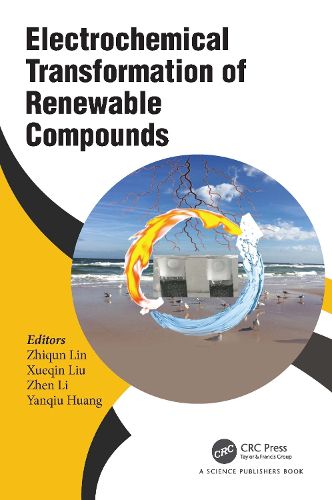Readings Newsletter
Become a Readings Member to make your shopping experience even easier.
Sign in or sign up for free!
You’re not far away from qualifying for FREE standard shipping within Australia
You’ve qualified for FREE standard shipping within Australia
The cart is loading…






Electrochemical conversion process can be used to generate power, store energy and synthesize chemicals, which plays a key role in the development of sustainable energy resources. Electrochemical Transformation of Renewable Compounds presents the basic fundamentals of different electrochemical transformations for clean energy and places a significant emphasis on the key developments of various electrochemical processes using the state-of-the-art materials. Written by electrochemical energy scientists who have worked on the application of electrocatalysis in environmental and energy area, this book provides comprehensive coverage of main electrochemical transformation processes, including oxygen evolution, hydrogen generation, oxygen reduction, carbon dioxide reduction, nitrogen reduction, methanol oxidation, urea oxidation and ammonia oxidation.
$9.00 standard shipping within Australia
FREE standard shipping within Australia for orders over $100.00
Express & International shipping calculated at checkout
Electrochemical conversion process can be used to generate power, store energy and synthesize chemicals, which plays a key role in the development of sustainable energy resources. Electrochemical Transformation of Renewable Compounds presents the basic fundamentals of different electrochemical transformations for clean energy and places a significant emphasis on the key developments of various electrochemical processes using the state-of-the-art materials. Written by electrochemical energy scientists who have worked on the application of electrocatalysis in environmental and energy area, this book provides comprehensive coverage of main electrochemical transformation processes, including oxygen evolution, hydrogen generation, oxygen reduction, carbon dioxide reduction, nitrogen reduction, methanol oxidation, urea oxidation and ammonia oxidation.